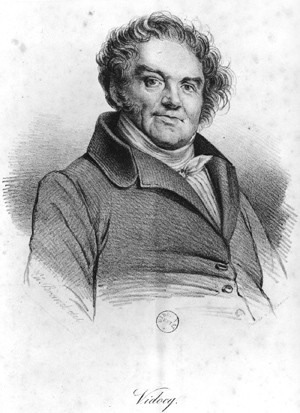CAS Professor James Johnson Awarded Guggenheim Fellowship
James Johnson will complete book on concealment

James Johnson, a CAS professor of history, who writes and teaches about modern and early modern European history, is among 178 artists, scholars, and scientists awarded a 2014 Guggenheim Fellowship. Photo courtesy of James Johnson
James Johnson is a cultural historian by training, but his prodigious research skills have also made him an expert sleuth. For his award-winning 2011 book Venice Incognito: Masks in the Serene Republic, which looked at how 18th-century Venetians thought about their identity by exploring how and why they used masks to conceal it, Johnson had to first imagine how they experienced the world.
“I try to find clues in all kinds of expression, public and private: in written and verbal testimony, in novels, plays, and paintings, in the works of moralists, philosophers, and social critics, in arrest documents, court testimony, codified law, and surveillance reports,” he says. He also looks for the telling details found in how those he’s studying dress and speak and by examining “the many strategies humans have devised to conceal the truth.”
Johnson, a College of Arts & Sciences professor of history and a 1996 winner of one of BU’s highest teaching honors, a Metcalf Award for Excellence in Teaching, was recently awarded a fellowship from the John Simon Guggenheim Memorial Foundation, which will allow him to finish writing a second volume on masking, disguise, and identity in European history. Like its predecessor, this book, Means of Concealment: French Identity and the Self, he says, “looks at strategies of self-concealment to understand how people in the past thought about their identity.”
One of academia’s highest honors, Guggenheim Fellowships are awarded annually to a diverse group of artists, scientists, and scholars who have “demonstrated exceptional capacity for productive scholarship or exceptional creative ability in the arts,” according to the foundation. The rigorous selection process consists of examination by a panel of experts in an applicant’s field—all former Guggenheim fellows—and then by a selection committee, with final approval by the foundation’s board of trustees. Johnson is one 178 fellows chosen this year from nearly 3,000 applicants.
“It’s a great honor and inspiration,” he says, “especially when you think of all the gifted scholars, writers, and artists who have received the award over the years.”
“The Guggenheim is one of the most prestigious honors a scholar can win,” says Virginia Sapiro, dean of Arts & Sciences. “Jim’s success at attracting this support is a token both to his reputation as a distinguished senior scholar and to the brilliance of the project he proposed.”

Johnson became interested in the role of self-concealment and selfhood while researching his first book, Listening in Paris: A Cultural History, about how listening is structured, how audiences of the past heard music, and how the experience of listening changed over time. He started to think about similar questions regarding self-conceptions, and began researching why people masked themselves.
His new book covers how self-concealment played out in France from Louis XIV to the eve of World War I. Having amassed enormous material from French libraries and archives over the last 15 years, Johnson has already finished a draft of the first half of the book. The Guggenheim grant will allow him to take time away from teaching to complete the project.
Whereas Venetians used masks so people of various classes could conduct their business without having to observe the etiquette of deference and position, Johnson says, Parisians took up masking for different reasons, especially during its heyday—the 1830s and 1840s—a “time of great social upheaval. People tested new identities by disguising themselves and acting out of station and character. Their disruptions were chaotic and sometimes violent.”
One of the most surprising revelations of Johnson’s research is “the persistent French fear of disguise, beginning in the Revolution of 1789 and continuing through the 19th century.” Revolutionaries banned masks for two reasons, he says: “They worried about conspirators and were convinced that fraternity would eliminate the need for secrets,” Fear of disguise “later haunted the French in the form of impostors and hidden criminals, a dread that runs through the great novels of Balzac, Hugo, and Dumas.” The French were so distrustful of self-concealment that they outlawed women’s veils, which were seen by the revolutionaries as a symbol of “culpable secretiveness.”
Johnson acknowledges that there are immense challenges in reconstructing how individuals long ago experienced the world. To better understand that, he is attempting to answer some fascinating historical questions, such as whether a French commoner in the 17th century would have thought of his identity as fixed or changeable; the motivations behind some of France’s most famous cross-dressers and how others responded; why some women dressed as men to fight for France in Napoleon’s wars; and why some of the early 19th-century French elite occasionally wore tattered clothes and frequented workers’ taverns.

The historian’s research has taken him to the Bibliothèque nationale de France, the National Archives, and the archives of the Opéra national de Paris and the French Defense Ministry to track criminal impostors, disrupters of masquerade balls, the con men who rose to the highest ranks of the military, and cross-dressers. “The archives of the Prefecture of Police are easily my favorite,” says Johnson, “because they share space with the Paris Police Museum, which has the dusty feel of an old-fashioned cabinet of curiosities, complete with ropes once used to strangle victims, walking sticks containing hidden stilettos, handwritten ransom notes, and a guillotine.”
Why is understanding the evolution of selfhood so important? Because “we live in an age of radical self-fashioning,” Johnson says. “From an early age, and from every conceivable direction, we’re told that we can be whoever we want to be. This is the promise of democracy, framed in the rhetoric of equality, and supported by seemingly limitless technological innovation.” For many, the claim seems undeniable, but he says this is a very recent phenomenon. Telling the story of how we came to such assumptions may help us better understand the nature of this freedom “in its opportunities, anxieties, and costs.”
As well as the Guggenheim Fellowship, Johnson was recently named an American Council of Learned Societies Fellow. The two grants will help support his work over the next year; he plans to take a sabbatical for the 2015–2016 academic year.
This summer Johnson will return to Venice, where he will write Means of Concealment and begin research for his next book, about the fall of Venice in 1797.

Comments & Discussion
Boston University moderates comments to facilitate an informed, substantive, civil conversation. Abusive, profane, self-promotional, misleading, incoherent or off-topic comments will be rejected. Moderators are staffed during regular business hours (EST) and can only accept comments written in English. Statistics or facts must include a citation or a link to the citation.